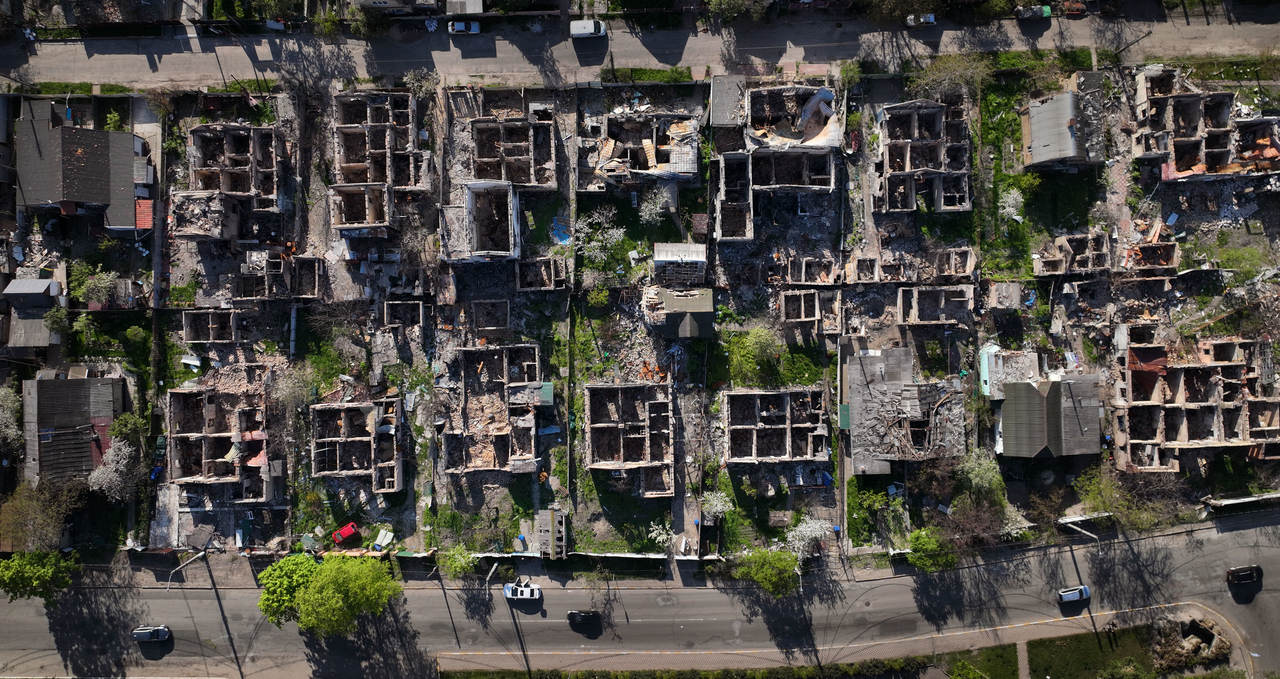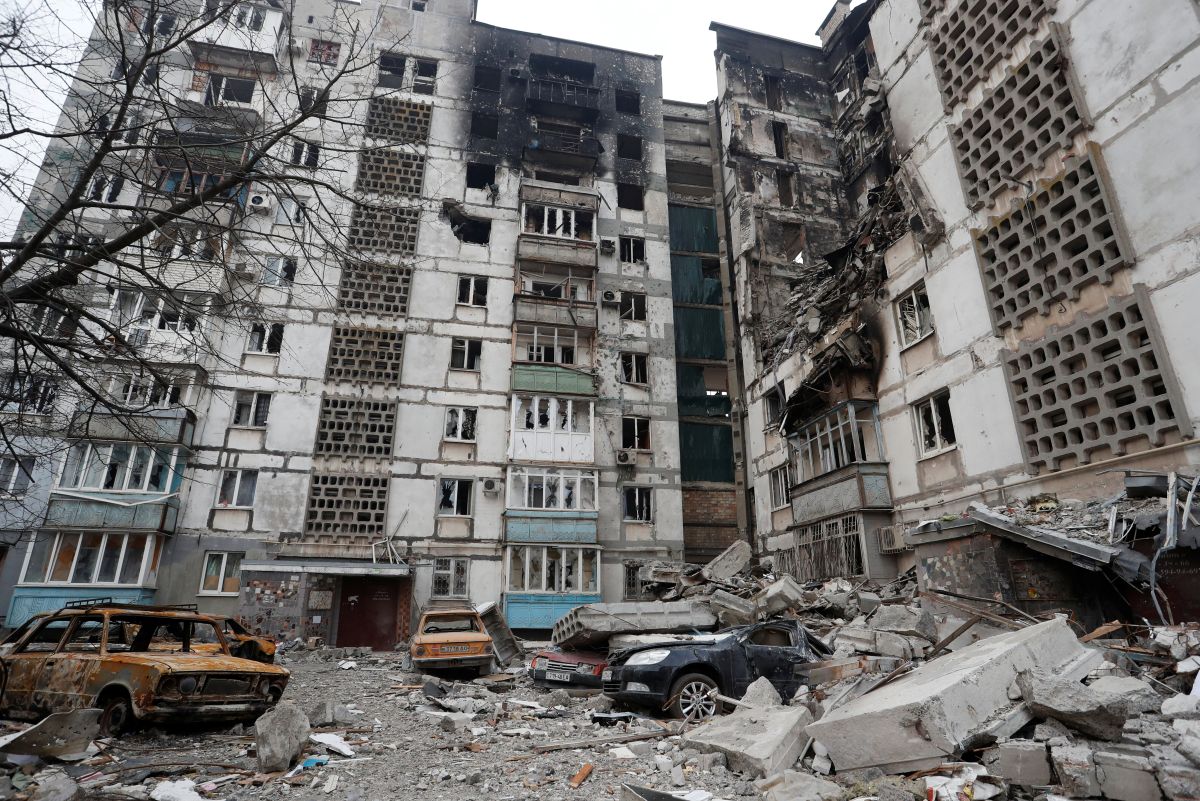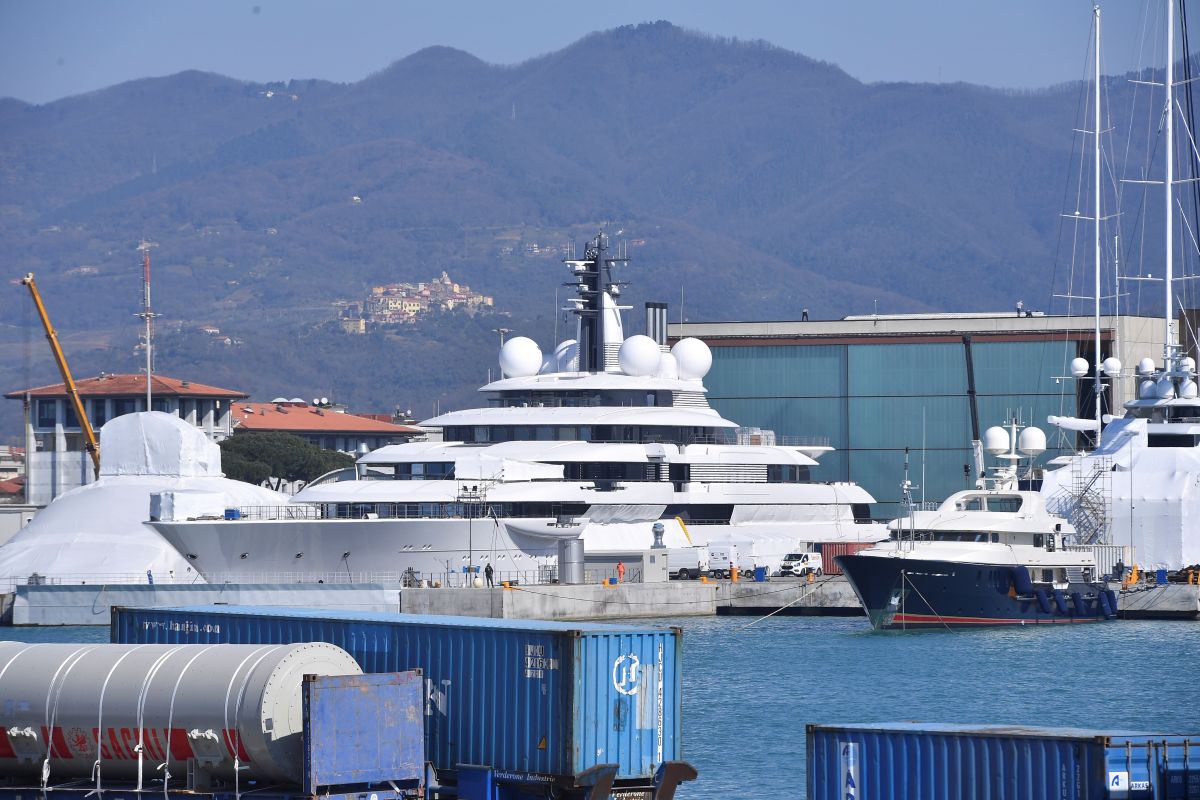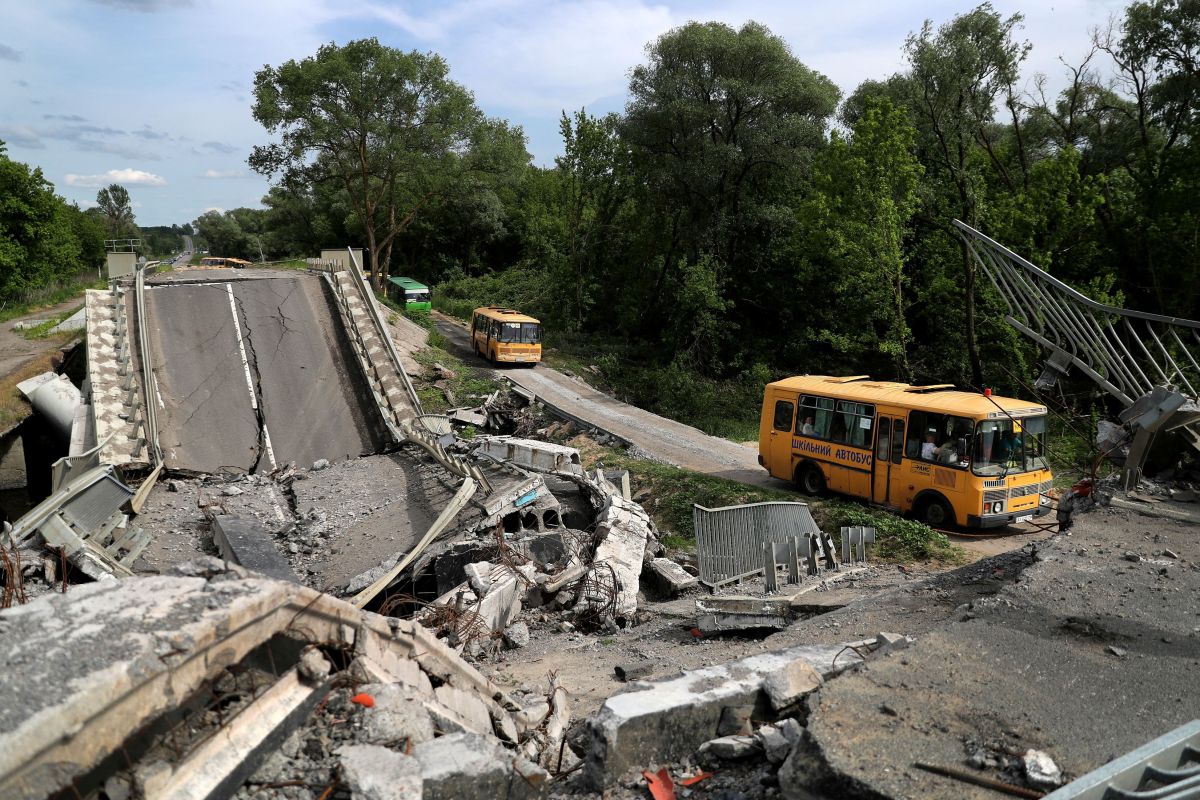Ukrainians Plan for Post-War Reconstruction
Despite the ongoing military operations, Ukraine is already preparing for reconstruction. The concept it presented in Lugano, Switzerland, in July this year envisages not only the rebuilding of damaged facilities but also a comprehensive transformation of the state and economy. So far, it has not been possible to secure sufficient funding, and it also will be a challenge to coordinate such a wide-ranging undertaking. Early planning of reconstruction activities increases the chances of its success and boosts Ukrainian morale. It also allows Ukraine's partners, including Poland, to be better prepared to take part in the reconstruction.
 Carol Guzy / Zuma Press / Forum
Carol Guzy / Zuma Press / Forum
The ongoing military operations in Ukraine are having a devastating impact on its economy. According to Ukrainian estimates, the material losses caused by the Russian invasion as of September this year are $127 billion. This sum includes the value of damaged residential buildings (around 40%), transport infrastructure (around 38%), as well as educational and medical infrastructure, and lost business assets. However, most of the loss calculations were made before the massive attacks on Ukraine’s energy infrastructure The International Monetary Fund estimates that Ukraine’s GDP will shrink by up to 35% this year.
Ukraine’s National Recovery Plan
On 21 April 2022, President Volodymyr Zelensky approved the establishment of the National Recovery Council from the Consequences of War, a board that includes ministers, the central bank governor, and about 2,500 experts in various fields. The council has prepared a draft National Recovery Plan (NRP), which was presented at the international conference in Lugano in early July. It envisages not only the reconstruction of the state from war damages but also the transformation and modernisation of the state and economy. The main objectives are European integration and full access to the EU and G7 markets, the creation of a business-enabling environment (transformation in priority sectors and reforms, and building strong human capital and effective infrastructure), macro-financial stability and resilience in national security. Reforms and reconstruction would ensure at least 7% economic growth over the next decade and allow Ukraine to be among the top 25 countries in two World Bank rankings: the Human Capital Index (an indicator of return on investment in human capital) and the Economic Complexity Index (measuring, among other things, export diversification).
In total, reconstruction and transformation have been estimated at $750 billion across 15 programmes. The largest and most expensive of these will be the reconstruction and modernisation of housing and civilian infrastructure (estimated to cost $150-250 billion) and the expansion of transport facilities with their integration into the EU ($120-160 billion). The Ukrainian government expects that the main source of funding will come from partner states and organisations: $250-300 billion is expected to come from grants and another $200-300 billion from loans. In addition, private investment could bring in up to $250 billion. Ukraine also expects that some of the funds could come from Russia’s and Russian oligarchs’ assets frozen in the West and from war reparations. Reconstruction would take place on two levels: regional, based on the responsibility of foreign partners for the revitalisation of specific regions, and sectoral, through specific foreign investors.
From the Ukrainian perspective, the Lugano conference did not produce any specific commitments from the international community, neither financial, nor regarding aid architecture. Only the Ukrainian plans were discussed and the participating countries expressed their support for the idea of reconstruction. The general principles according to which reconstruction is to take place were adopted, such as the focus on internal reforms, transparency, and respect for the rule of law. More detailed arrangements were also lacking at the next conference, held in Berlin in October under the auspices of the G7 and the European Commission. Although neither meeting produced tangible results, one of Ukraine’s objectives, besides presenting the plan itself, is to maintain the interest of partner countries and to emphasise Ukraine’s Euro-Atlantic direction and continuity of reforms. However, the priority for stakeholders at the moment is macro-financial support to enable the functioning of the Ukrainian state and the supply of arms.
Challenges
The prolonged war is devastating Ukraine. The potential damage will be much greater than estimated so far, and the priority is to repair the current destruction, especially critical infrastructure. Logistics is also a challenge. Russia’s blockade of the Ukrainian coast means that most trade routes now rely on underdeveloped road and rail infrastructure across the western and southwestern borders, while the so-called Grain Agreement addresses the possibility of exporting only agricultural products across the Black Sea.
The fight against corruption and the effective completion of judicial reform are essential to attract donors, engage private investors and effectively spend reconstruction funds. Implementing these reforms is one of the objectives of the NRP and is in line with the notes of the European Commission recommendation that Ukraine be granted EU candidate status. Ukraine has already taken formal steps. In June this year, the Verkhovna Rada adopted the Anti-Corruption Strategy for 2021-2025, and in July succeeded in appointing the head of the anti-corruption prosecutor’s office, Oleksandr Klymenko. However, the position of head of the National Anti-Corruption Bureau, for example, is still vacant. Among the most important elements of the fight against corruption is the far-reaching digitalisation of the state, including the introduction of the ProZorro public procurement system. However, the anti-corruption activities of law enforcement agencies and the actual implementation of anti-corruption policies remain a challenge.
Ukraine’s reconstruction plan is very comprehensive, while at the same time lacking specifics regarding the institution responsible for its coordination. There is also the question of fundraising. Back in April, President Zelensky announced the creation of a Reconstruction Fund, which has still not become operational. However, several other tools are already in operation, including a fund under the United24 presidential programme, which targets private donors.
Opportunities
The political and social consensus on Ukraine’s Euro-Atlantic path is a chance to comprehensively modernise the state and lay the foundations for long-term economic growth. Fulfilment of the NRP’s ambitious reforms and economic strengthening would be an important argument in the accession negotiations with the EU and would create the possibility for Ukraine to function effectively even if membership cannot be achieved quickly. In the short term, the binding of some funds by potential donors, including the EU, to the implementation of reforms could translate into an effective fight against corruption. In addition, the cut-off of relations with Russia and the reorientation of the economy towards other markets, including the EU’s, is an additional impulse to continue the integration of the Ukrainian economy with the single market and permanently connect it with the European network of transport corridors.
The social dimension will play an important role in the reconstruction process. The high mobilisation of civil society is already supporting the state’s defence effort. The continued involvement of Ukrainians and their determination will be the driving force behind the reforms, from the bottom-up control of central and local government offices to the implementation of state reconstruction projects. In addition, the planned strengthening of Ukraine’s human capital may have a positive impact not only on the economy but also on post-war returns from abroad, thus mitigating the negative demographic effects of the war. Rebuilding some of the infrastructure, or even starting work during the military operations, will bolster Ukrainian morale.
Prospects for Poland
From a security point of view, the successful reconstruction of Ukraine means first and foremost stability in Poland’s neighbourhood. Economically, it will be an opportunity for Polish enterprises and investors to participate in the reconstruction, strengthening exports to the Ukrainian market. PEKAO Bank estimates that the total benefits from Polish involvement could reach around PLN 172-188 billion (€36-40 billion). Much potential lies particularly in the refining and energy sectors, as well as in the construction and processing industries, which produce various materials needed for rebuilding.
Poland’s experience in economic transformation and modernisation, and above all its geographical proximity, could be important in the reconstruction process in Ukraine and facilitate Polish involvement. Ukrainians’ sympathy towards Poles and a law on the special status of Polish citizens (especially a guaranteed right to work and do business on the same basis as Ukrainian citizens) could be an additional facilitation for Polish businesses.





